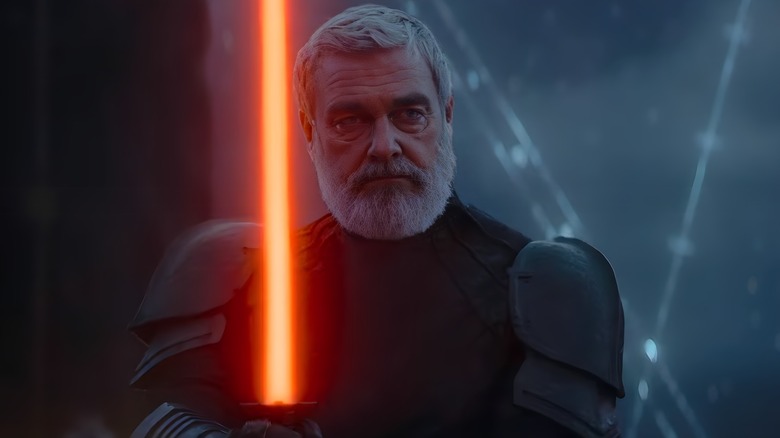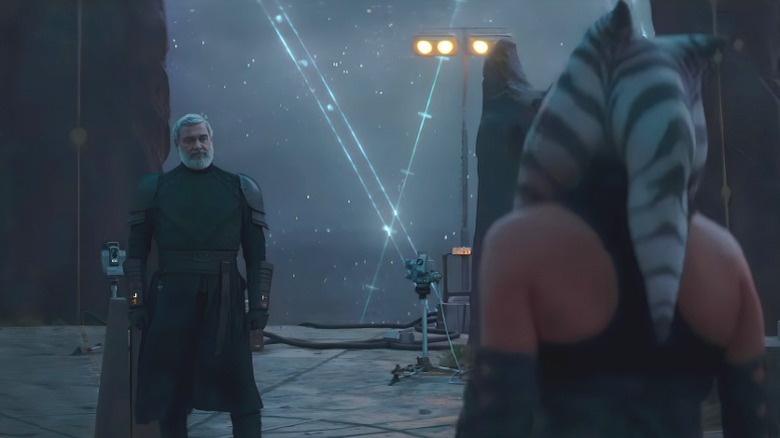Ahsoka: How Norse Mythology Might Be A Clue Into Ray Stevenson's Baylan Skoll
Disney+'s "Ahsoka" is almost here, but that hasn't stopped major "Star Wars" fans from continuing to speculate on what the long-awaited series will entail. Particular attention has been brought to some mysterious new characters who will be appearing in the project, including the late Ray Stevenson's "Star Wars" debut as Baylan Skoll. There's not much known about Skoll, except for the fact that he's an ex-Jedi, he's got a nefarious plan to catch Ahsoka (Rosario Dawson), and he's going to cross lightsabers with her at some point.
While much of Skoll's character is still ambiguous at the moment, there is one source by which fans may be able to glean a better idea of what he's all about. While the name "Baylan Skoll" may sound like typical "Star Wars" fare, it hides a certain intriguing inspiration. Both him and his apprentice Shin Hati (Ivanna Sakhno) derive their names from the Norse mythological figures of Skoll and Hati, and this connection opens up some interesting ideas.
Skoll's name is fitting
In Norse mythology, Skoll and Hati are a pair of wolves with ties to the phenomenon of Ragnarok — the end of the world, in layman's terms. As the story goes, the pair pursue the embodiments of the sun and the moon until they finally catch them, leading to the beginning of the apocalypse.
"Ahsoka's" Skoll has a lot in common thematically with the Skoll of mythology. His pursuit of Ahsoka mirrors that of the wolves' chasing after the sun and moon. Ahsoka, representing the noble Jedi while also having once fallen to the dark side of the Force, could be argued to be an embodiment of both sun and moon, or light and dark. If one really wants to stretch the thematic connections, Skoll also fits the archetype of a wolf in sheep's clothing, owing to his status as ex-Jedi.
Perhaps the most important element of all of these ideas is that Skoll's potential capture of Ahsoka could prove disastrous — or even apocalyptic — for the "Star Wars" universe. Could Ahsoka's downfall somehow mark the major turning point of the rise of the First Order in the "Star Wars" timeline? It all remains to be seen, but it's some entertaining food for thought at the very least.

